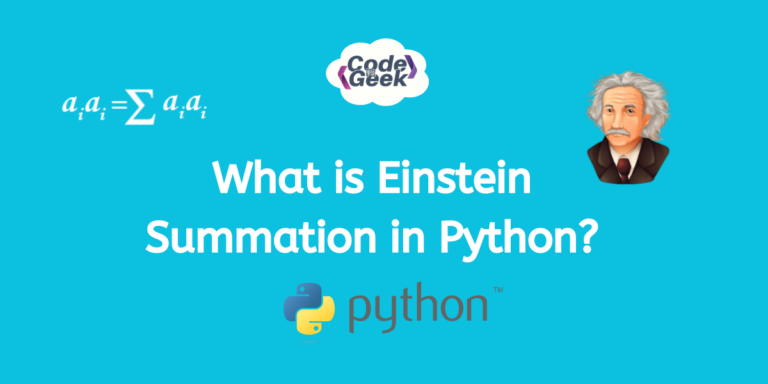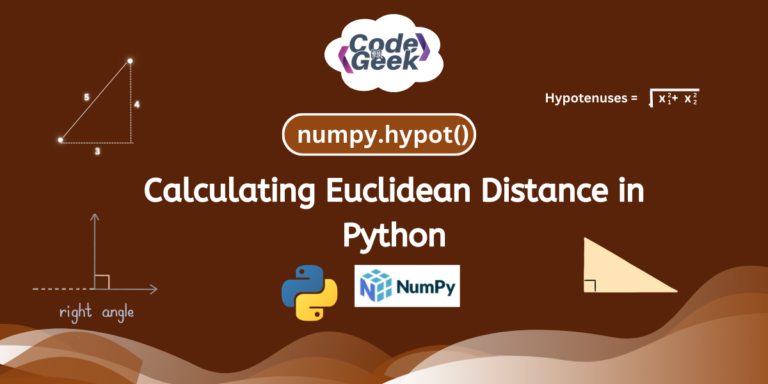New to Rust? Grab our free Rust for Beginners eBook Get it free →
Why Python is a Must-Know Language for Quant Traders!?

Do I absolutely need to learn Python to become a world-class trader?
This is a question often asked by traders, and the short answer is “yes, absolutely.” In fact, here’s what Natalie Basiratpour, director at recruitment firm Selby Jennings, had to say: “If you’re simply a discretionary trader, you won’t need to know how to code, but if you’re going into quantitative or electronic trading, then coding will definitely help.”
But why is this so important, and how exactly will Python get you ahead of the pack? That’s what you will learn in this article, alongside some resources to help you pick up Python skills.
What is Quant Trading?
Quantitative trading is the execution of strategies using quantitative methodologies and algorithms. This has a wide range of applications; for example, a trader can use a mathematical model to determine what an asset “should” be worth before making a deal. These models are intended to utilize the information that the market may be lacking, such as what happens to a firm or an industry when interest rates move in a specific direction. However, this is simply quantitative trading, which hedge funds or investment banks often carry out.
Who Are Quant Traders?
A quant trader is a specialist trader that evaluates financial products or markets using analytical and quantitative approaches. This allows them to identify trading opportunities and assess risks.
Why Python is a Must-Know Language for Quant Traders
Now that those are out of the way, here are five significant reasons why Python is a must-know language for quant traders:
- Cost-Cutting
Banks have traditionally divided quantitative trading teams into “quant traders” and “quant developers.” Quant traders devise trading strategies, while quant developers turn those strategies into code that would put them into action. However, this is fast becoming obsolete, as quant traders that are good coders have proven that this is largely unnecessary.
In a report by Business Insider Inc., an anonymous, top-level electronic trader who worked at Goldman Sachs believes splitting roles is really old school. The ex-Goldman dealer said, “I’ve worked at large institutions where the developer and quant jobs were separated and in smaller high-frequency boutiques where they weren’t. And it is significantly more economical to design your own trading model – it provides you an advantage.”
Not only will Python benefit your employer by getting one person to do the job of two, but it will also increase your market value. With the understanding of the versatility you bring to the table by being proficient in coding, you will stand head and shoulders above non-proficient colleagues in interviews.
Coding proficiency is becoming quite the prerequisite, so much so that senior traders are returning to university to obtain a master’s degree in computer science to preserve their employability. It is believed, traders should be familiar with C++, C#, or Python. Systematic traders must be familiar with scripting languages such as MATLAB and SQL. Most computer science and math students have studied coding, and it’s projected that all juniors in finance will be coding-literate within a few years.
2. Advanced Research and Prototyping
Python is slower than C# and C++, but it is commonly employed in quant trading because it is a high-level language. Python’s high-performance libraries make exploration and prototyping easier. Algorithmic traders may execute any data analysis with a wide range of scientific libraries in Python at speeds similar to compiled languages like C++. Compared to MATLAB, Python might be lacking in some regards, but the language still has a huge selection of libraries that few others have. Here are some examples:
- NumPy and SciPy (basic array/math packages)
- OpenCV-Python
- scikit-image: image processing in Python
- scikit-learn: machine learning in Python
- Python Data Analysis Library
If you have been a quant trader for a while but have never coded, you have no reason to worry. One of the major reasons traders opt for this language is that it is pretty easy to learn and user-friendly. Many people believe Python’s code resembles regular language. However, if you’re new to coding, you won’t think so right away. But trust me, it gets easier. With time, Python code will appear relatively understandable, and other languages will seem like hieroglyphs to you.
Resources to Learn Python
- Trality’s Algorithmic Trading with Python and How to Build Your Own Python Trading Bot do an excellent job of teaching Algorithmic trading with Python.
- Learn Python The Hard Way is also another excellent resource for learning Python.
- And once you’ve grasped the basic syntax, you can head to this interactive Python Riddle to practice utilizing it!
3. Community Support and Countless Python Libraries
Libraries are a collection of reusable modules or functions that may be used directly in our codes to execute a specific function without the need to write the function’s code. People write free codes that others can utilize, and there are libraries for data analysis, chart plotting, internet scraping, and machine learning, among others. When it comes to trading research and execution, these libraries simplify our lives and save us a lot of time. We may enter the code and utilize it for our strategy analysis.
Besides providing free codes on the internet, communities also come in handy as you can easily find answers to questions and link up with other traders.
Here are some of the most popular Python communities:
- Python meetups – There are over 1,637 Python user groups in nearly 191 cities, 37 countries, and over 860,333 members worldwide.
- There are over 1.3 million Python repositories on Github, out of a total of 2 million.
- On StackOverflow, almost 1.7 million Python queries have been answered.
I haven’t even touched on the huge majority of local Python communities available through various portals, organizations, platforms, forums, etc.
4. Scalability and Parallelization
Aside from having forums where you can share and learn from others, existing Python modules make it simpler for algo traders to share functionality across programs by decomposing them into distinct modules that can be applied to multiple trading systems.
Scalability is provided through parallelization and Python’s immense processing capability. In comparison to other languages, Python makes it easy to add new modules and makes them more extensible. And by using the existing modules, traders may more easily transfer functionality between various programs. In essence, with Python, a trader can easily link various systems with data feeds and databases, analyze data, and output results into user and trade applications.
5. In-Depth Market Analysis
Traders need powerful tools for carrying out in-depth market analysis to identify patterns and insights, which they use to make predictions and projections based on their findings. Python algorithmic traders may construct highly creative trading techniques and profit from predicted analytical insights based on specific market situations.
Python is more than simply a great programming language for algorithmic trading. From multibillion-dollar organizations to startups, it’s the language that powers some of today’s largest brands and, most likely, tomorrow’s stars.
Trading indicators are mathematical calculations that are plotted as lines on something like a price chart and can assist traders in identifying specific signals and market trends. And when it comes to technical analysis, TA-LIB is one of the most popular Python libraries.
Aside from the five reasons above, you should do all you can to add Python skills to your stack because they will help you with:
- Constructing your own data connections
- Executing mechanisms
- Backtesting
- Optimizing test modules
- Order and risk management
- Walk forward analysis
Conclusion
The world is moving fast and those hooked on conventional methods are left behind with every passing day. According to a post by NapBots, the average annual income of a Quant Trader is 63,000 GBP, while that of a quant developer is 93,000. Clearly, being proficient in Python is the crown jewel of Quant traders, and I don’t see why you shouldn’t get yours.





